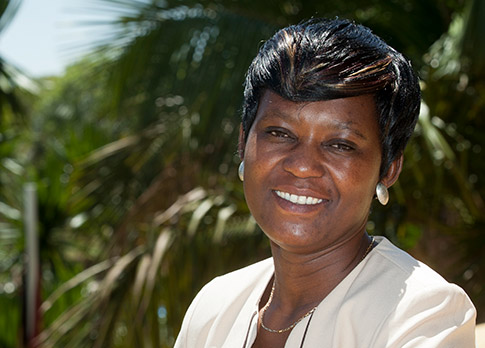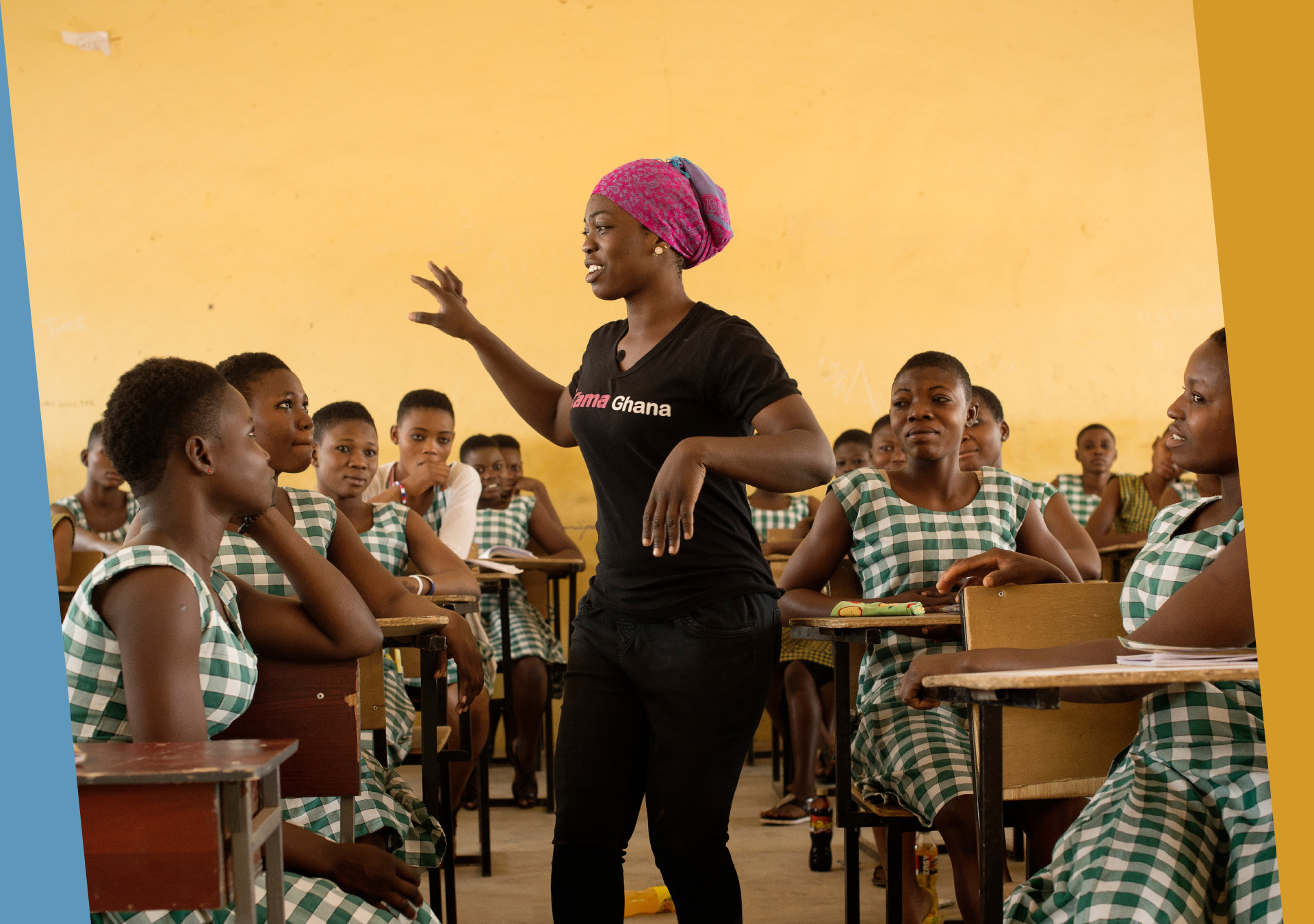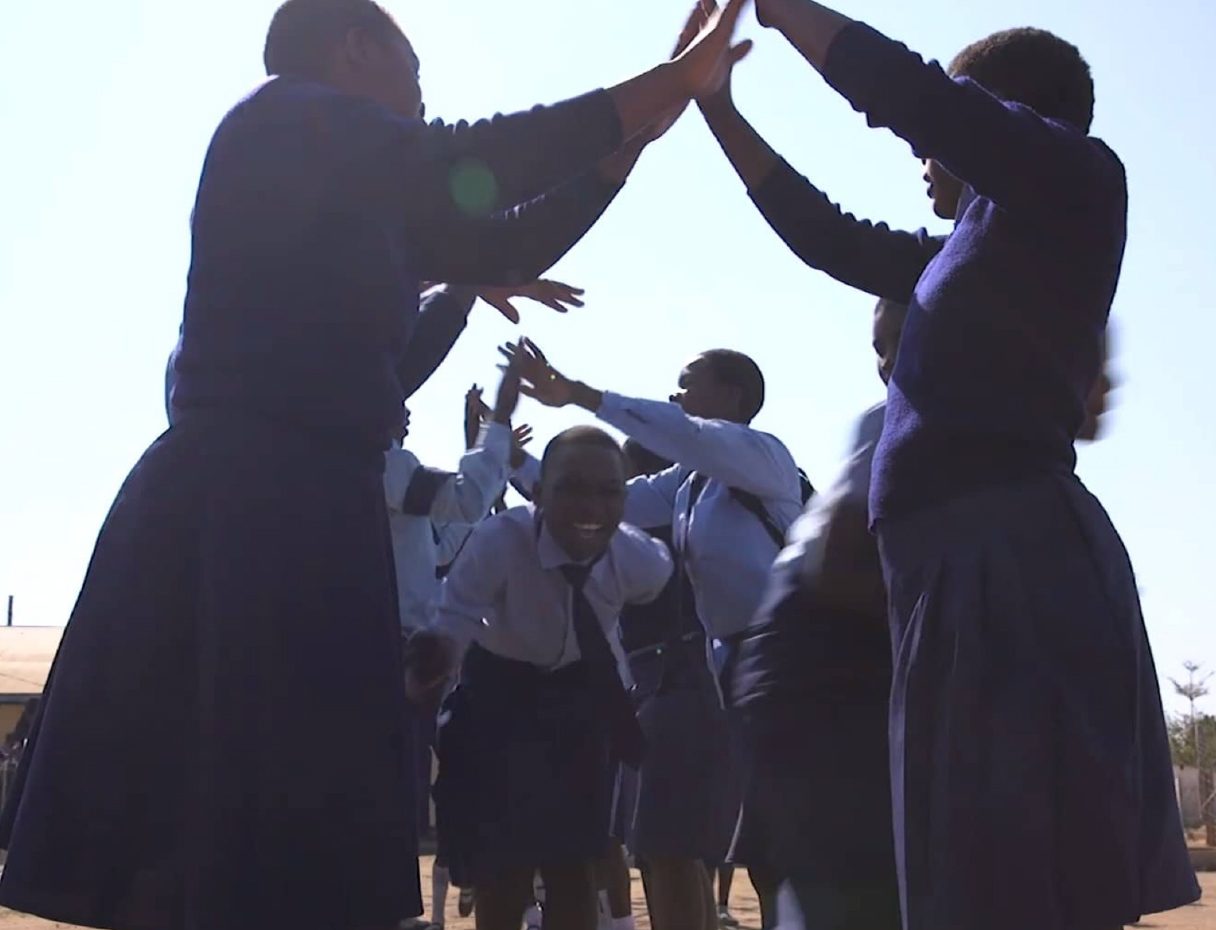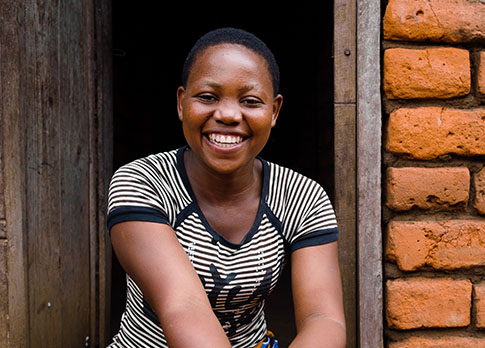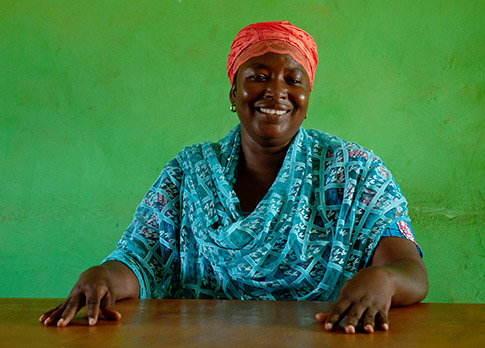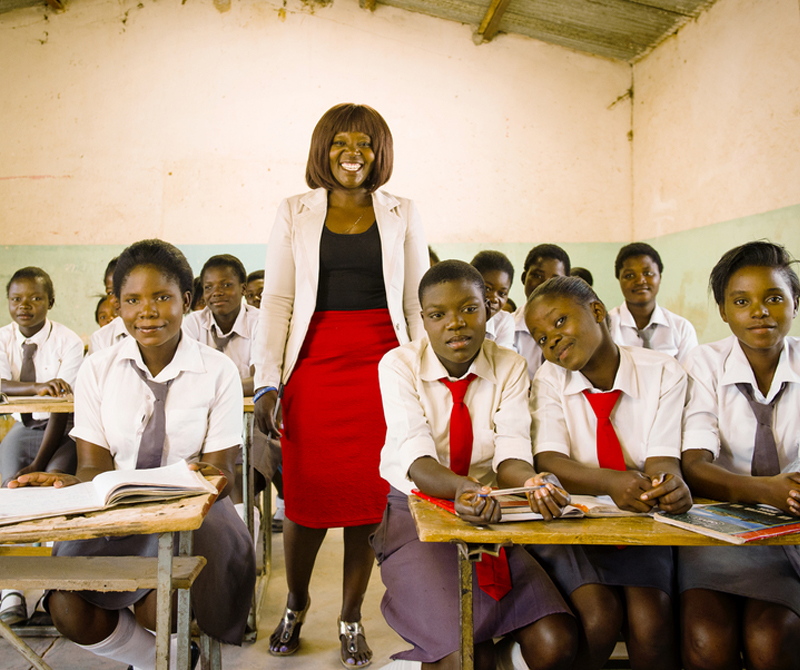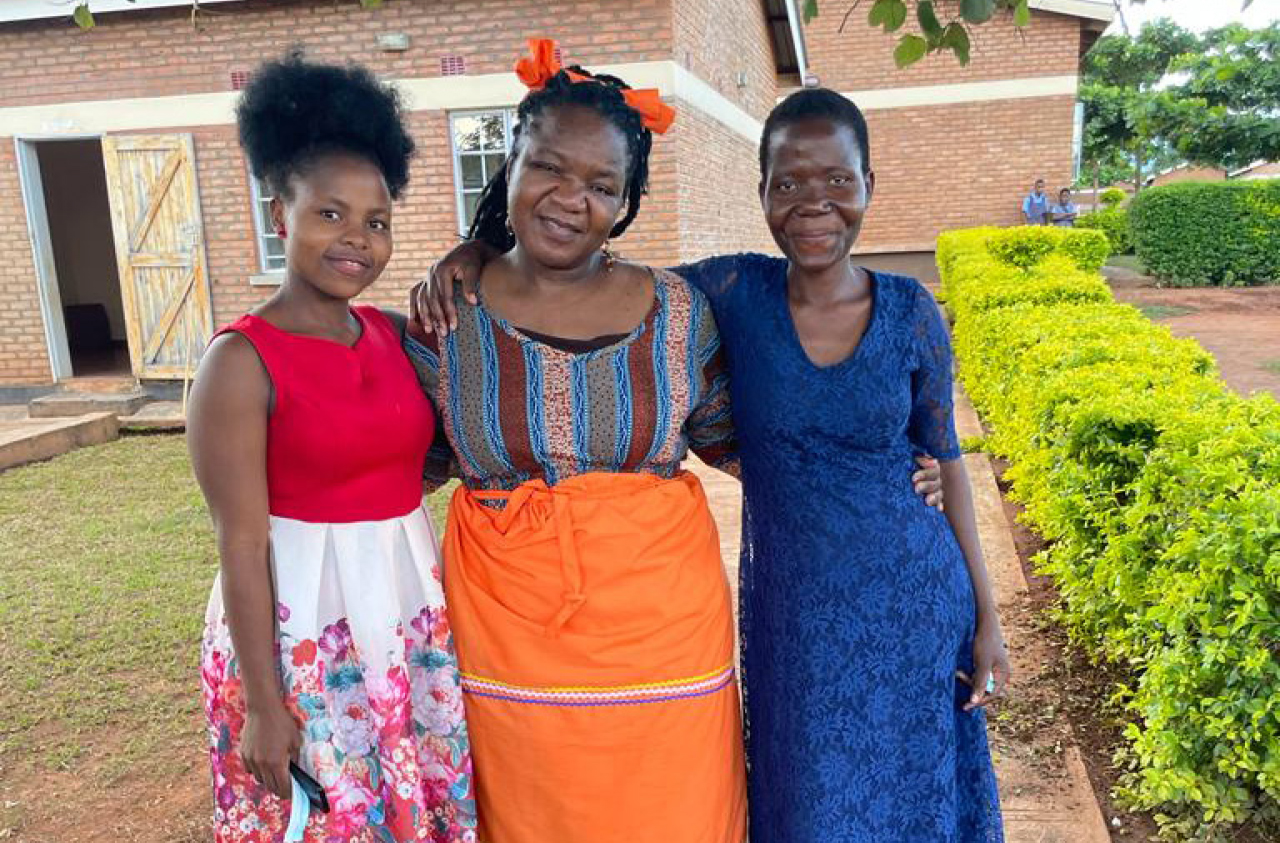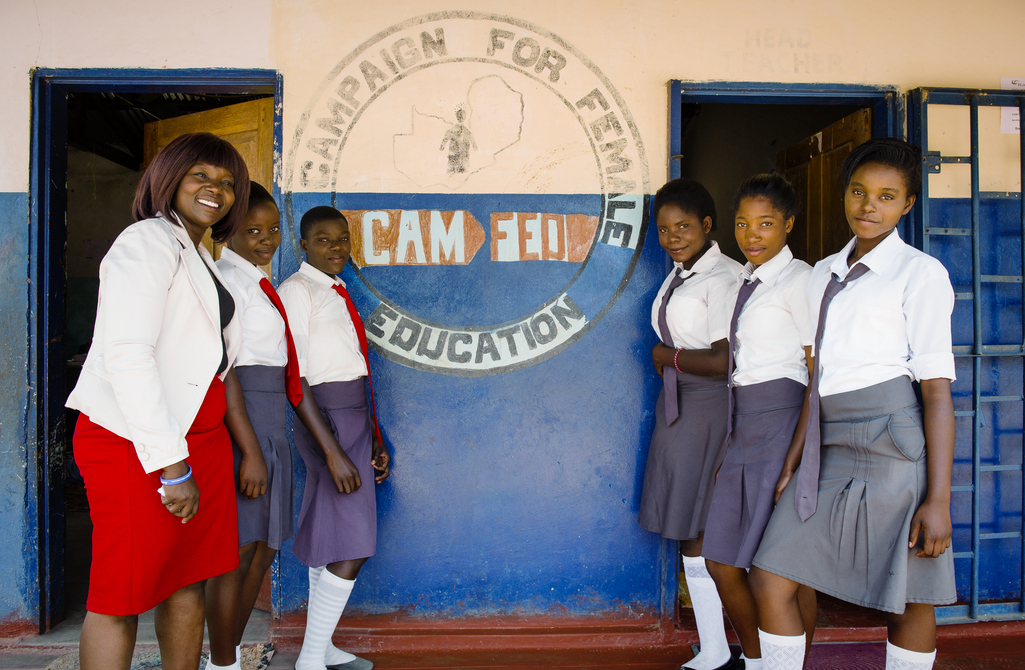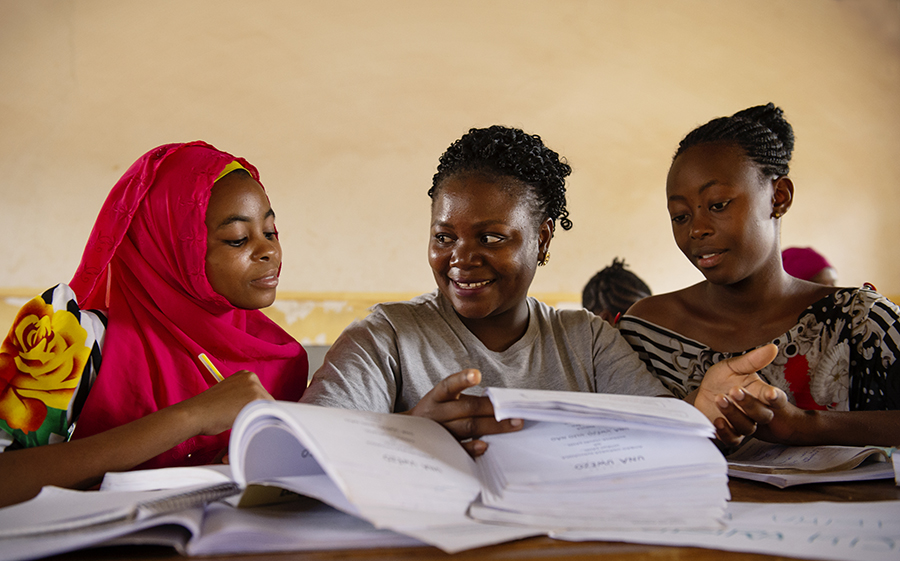
A powerful force for change: Women leading after graduation
After graduating secondary school, a young woman can join the CAMFED Association of women leaders. This enables her to navigate a period of vulnerability as she waits for exam results, or perhaps feels pressure to move to town to find work or to marry early in order to make ends meet — putting her at risk of exploitation and illness.
As a movement, we support her to find pathways through skills-training, further education, youth enterprise or employment, on the way to becoming independent and influential. CAMFED Association members trained as Transition Guides (peer educators) pass on information on sexual and reproductive health and more, as well as providing guidance about secure livelihoods, including in climate-smart agriculture.
A young woman in our pan-African peer support and leadership network commits to mentoring and supporting her sisters as well as future generations. She grows into a respected role model in her community, working with others to secure every child’s right to go to school, and change the status quo for girls for good.
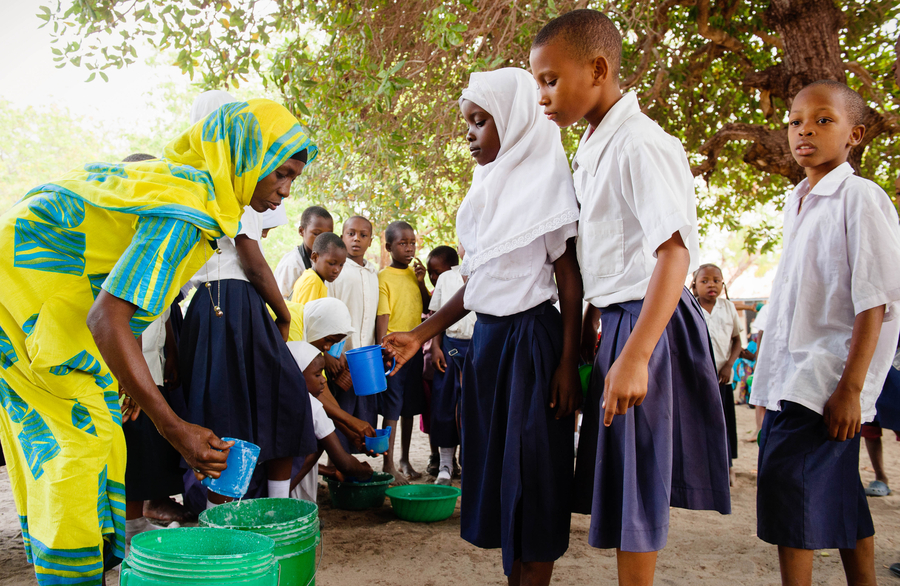
Laying the foundation: Primary school funding
We also partner with primary schools to provide targeted support to vulnerable children. Many are orphans cared for by grandmothers or other relatives who have many more children to look after. In these circumstances, items like stationery, school clothing, and shoes are often out of reach — the provision of them encourages learning and boosts morale.
We work with primary schools to improve learning environments, and we provide training and startup grants for Parent Support Groups, for example, who prepare school meals, rally more resources for students, and work to improve school facilities.
Increasingly, Learner Guides are present at primary level to help support successful transitions to secondary school.
